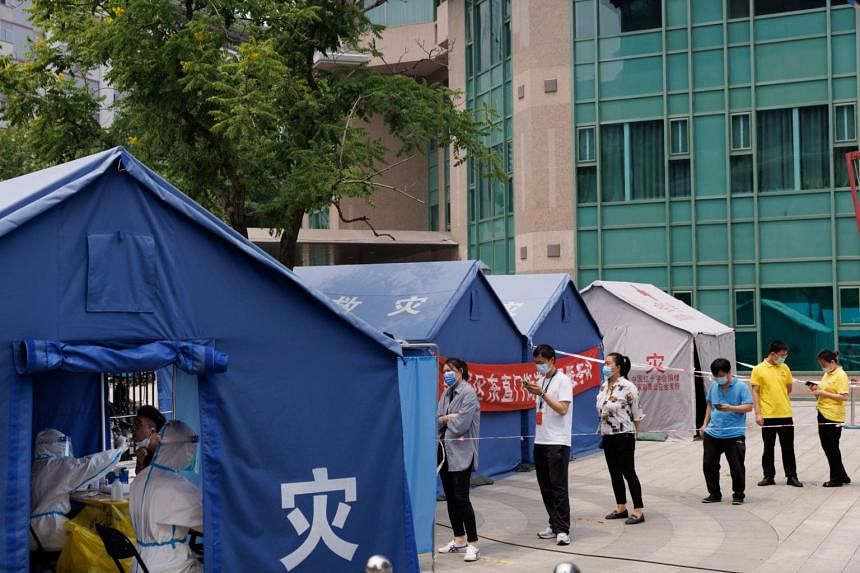BEIJING (BLOOMBERG) -China's broad budget deficit in the first five months of the year ballooned by almost a trillion yuan to the worst on record, as spending soared due to Covid-19 outbreaks and tax breaks to stimulate the economy caused income to drop.
The government took in a combined 10.9 trillion yuan (S$2.3 trillion) in general and government fund revenues in January to May, but that was far exceeded by the 13.8 trillion yuan it spent in the period. The 2.9 trillion yuan deficit, which covers the budgets for all levels of government, compares with a small surplus at the same point last year and is almost 43 per cent bigger than in 2020, according to Bloomberg calculations based on data from the Ministry of Finance (MOF).
China's finances have been hit by a double whammy in the past few months after the largest outbreak in more than two years meant the government needed to spend more to pay for lockdowns and healthcare. It also had to increase stimulus to support an economy damaged by those same Covid-19 controls. The drop in revenue just as more spending is needed will force the local authorities to either boost their already heavy debt burden or accept weaker economic growth.
General fiscal revenue contracted 33 per cent in May from a year earlier to 1.24 trillion yuan, after a 41 per cent plunge in April, according to Bloomberg calculations using MOF data, as the government continued to hand out tax rebates to support businesses and shore up the Covid-19-hit economy. The income from mainly taxes and fees for the first five months of the year was 8.7 trillion yuan, down 10 per cent from the same period last year, according to the ministry.
The government expanded this year's 1.5 trillion yuan value-added tax refund plan by another 140 billion yuan in May. Revenue for the five-month period would have increased 2.9 per cent from a year earlier had it not been for the tax rebates, the ministry said in a statement.
The government started providing the tax relief in April and the dent to income is expected to taper off in the coming months given that 1.34 trillion yuan had already been paid out by last month, according to figures provided by officials previously. The ministry aims to complete the returns for small companies and manufacturing firms by the end of this month.
Government spending in the first five months of the year continued to rise, with general fiscal expenditure, which includes spending on education, healthcare and scientific research, up 5.9 per cent year on year to 9.91 trillion yuan.
With the property market showing little signs of improvement, the slump in real estate income will continue to weigh on government finances. Government revenue from selling land plunged by 28.7 per cent year on year in the first five months of 2022. Deed taxes, which are paid when a property is bought or sold, fell 28.1 per cent in the same period, MOF data showed.
Tax revenue from vehicle purchases tumbled 28.9 per cent, after falling 28.3 per cent in the first four months, reflecting weak consumer spending. Meanwhile, taxes on corporate and individual income increased at a slower pace than in January to April, rising by 4 per cent and 8.3 per cent respectively.

